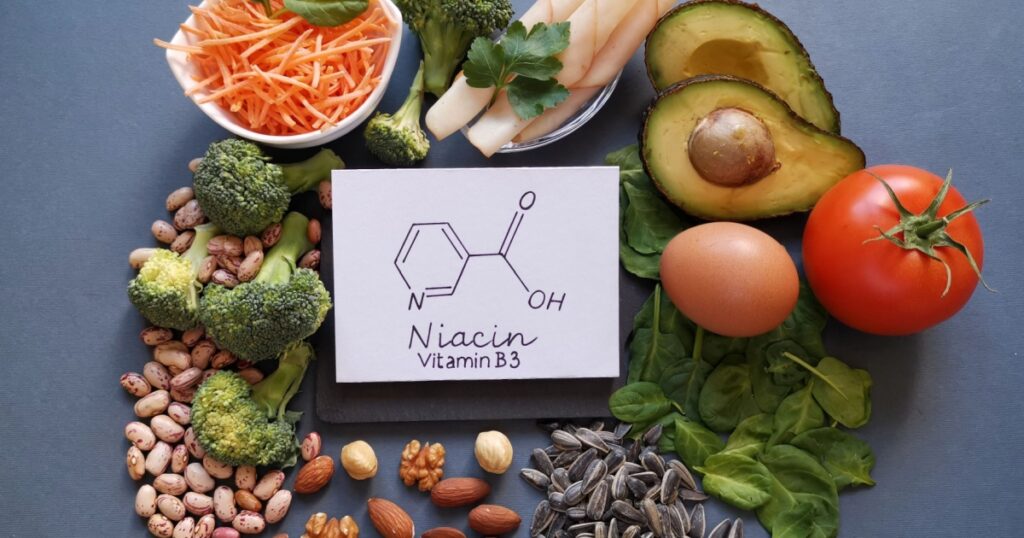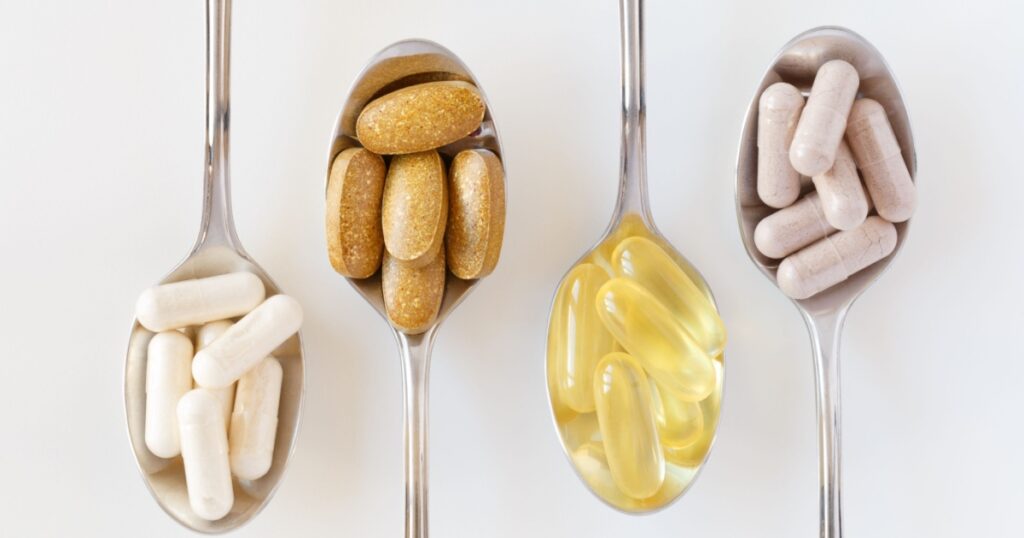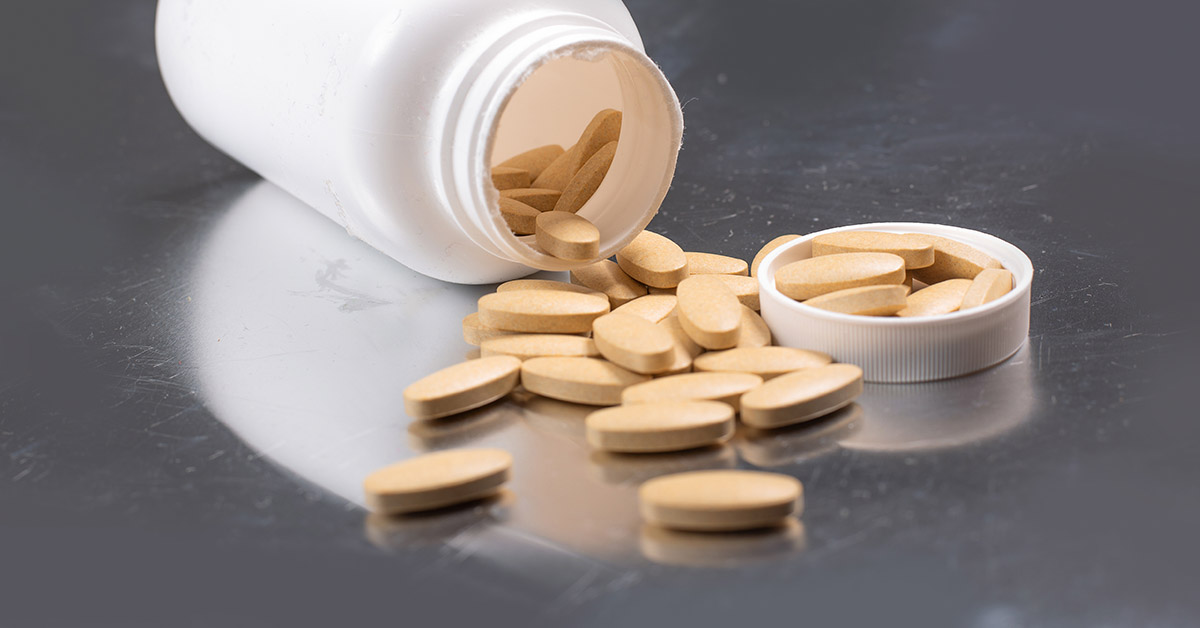In today’s health-conscious world, many individuals turn to supplements to boost their overall well-being. While certain supplements can be beneficial, it’s important to recognize that not all of them are created equal. In fact, some supplements may even cause more harm than good, particularly when used improperly or in excessive amounts. So before you take your morning supplement routine, read this – and maybe have a chat with your doctor or dietitian about what is right for you.
7 Supplements That May Do More Harm Than Good

Supplements are a pretty common household thing. Many of us grew up taking a morning vitamin as children and likely continued the practice as adults. The supplement industry is a massive one, and they are constantly doing their best to convince us that we need this supplement or another one. But peel back the layers of marketing, and what does the science actually say about all of this? As it turns out, many supplements are, frankly, just a waste of money, and some could even be harming your health rather than helping it. Here are seven supplements that you are better off replacing with a simple, everyday healthy diet and lifestyle.
Read More: 7 Supplements that Improve Brain Function
1. Vitamin A

While vitamin A is crucial for maintaining healthy vision, immune function, and cell growth, excessive intake can be detrimental. High doses of vitamin A can lead to a condition known as hypervitaminosis A, which may cause nausea, poor appetite, vision problems, and even liver damage. Obtaining vitamin A (retinol) or pro-vitamin A (beta-carotene) from natural sources like fruits, vegetables, and animal products is advisable, rather than relying solely on supplements. (1)
2. Niacin or Vitamin B3

Niacin is essential for energy production and proper functioning of the nervous system. However, taking extremely high doses of niacin in the form of supplements can result in a condition called niacin flush. Symptoms include intense skin flushing, itching, and rapid heartbeat. While prescribed niacin supplements can be beneficial for certain medical conditions, it is best to consult with a healthcare professional before starting any niacin regimen. (2)
3. Vitamin E

Vitamin E is known for its antioxidant properties and its role in skin health. However, taking high doses of vitamin E supplements can increase the risk of bleeding by interfering with blood clotting. It is important to note that obtaining vitamin E from natural food sources, such as nuts, seeds, and vegetable oils, is generally safe and beneficial. (3)
Read More: 5 of The Best Types of Foods and 4 Supplements for IBS
4. St. John’s Wort

St. John’s Wort is a herbal supplement commonly used to alleviate symptoms of depression. While it may be effective for some individuals, it can interact negatively with other medications, such as birth control pills, blood thinners, and antidepressants. Before using St. John’s Wort, it is crucial to consult with a qualified healthcare professional to avoid potential detrimental drug interactions. (4)
5. Calcium

Calcium is essential for strong bones and teeth, as well as proper muscle and nerve function. However, excessive calcium supplementation can lead to hypercalcemia, a condition characterized by constipation, kidney stones, and even impaired kidney function. It is generally recommended to obtain calcium from dietary sources like dairy products, fortified plant-based alternatives, and leafy greens. Speak with a healthcare professional to determine if calcium supplementation is necessary for your specific needs. (5)
6. Multivitamins

Multivitamins are often marketed as a convenient way to cover all nutritional bases. However, relying solely on multivitamins for nutrients can be misleading and potentially harmful. High doses of certain vitamins and minerals found in multivitamins, such as vitamin A, vitamin E, and iron, can have adverse effects when consumed in excess. Instead, aim for a well-balanced diet that includes a variety of nutrient-rich foods to obtain your daily required vitamins and minerals. (6)
7. Vitamin D

Vitamin D plays a vital role in maintaining strong bones and supporting overall immune function. However, excessive intake of vitamin D supplements can lead to vitamin D toxicity, which manifests as nausea, vomiting, poor appetite, and even kidney damage. Before considering vitamin D supplementation, it is important to consult with a healthcare professional who can assess your individual needs, recommend appropriate dosages, and monitor your vitamin D levels. (7)
Read More: Massive Study Shows Vitamin D Supplements May Help Fend Off Dementia
The Real ‘Alternative’ To Supplements

The best way to obtain necessary nutrients is through a balanced and varied diet. Focus on consuming whole foods such as fruits, vegetables, whole grains, lean proteins, and healthy fats. These foods provide a wide array of vitamins, minerals, and antioxidants that work synergistically to support overall health. By prioritizing a nutrient-dense diet, you can minimize the need for extensive supplementation.
Speak with healthcare practitioner

Before adding any supplements to your routine, whether they are vitamin, mineral, or herbal, it is crucial to consult with a healthcare professional. They can assess your overall health, medications, and specific nutritional needs to determine whether supplementation is necessary and if so, recommend appropriate dosages. Your doctor’s expertise will ensure that you make informed decisions regarding your health.
The Bottom Line

Supplements can be helpful when used correctly and in moderation. However, it is essential to be aware of the potential risks associated with certain supplements, as they can cause more harm than good when not taken appropriately. By focusing on a healthy, balanced diet and consulting with a healthcare professional, you can ensure that your nutritional needs are met safely and effectively.
Read More: Autoimmune disease may be prevented by vitamin supplements, study finds
Sources
- “Hypervitaminosis A.” Mount Sinai
- “Vitamin B3 (Niacin).” Mount Sinai
- “Vitamin E.” NIH
- “St John’s Wort.” Cleveland Clinic
- “The good, the bad, and the ugly of calcium supplementation: a review of calcium intake on human health.” NCBI. Kelvin Li, et al. November 28, 2018.
- “Is There Really Any Benefit to Multivitamins?” Hopkins Medicine
- “Safety issues of vitamin D supplementation.” Pubmed. Armin Zittermann, Sylvana Prokop, Jan F Gummert, Jochen Börgermann. January 2013.
Disclaimer: This information is not intended to be a substitute for professional medical advice, diagnosis or treatment and is for information only. Always seek the advice of your physician or another qualified health provider with any questions about your medical condition and/or current medication. Do not disregard professional medical advice or delay seeking advice or treatment because of something you have read here.

